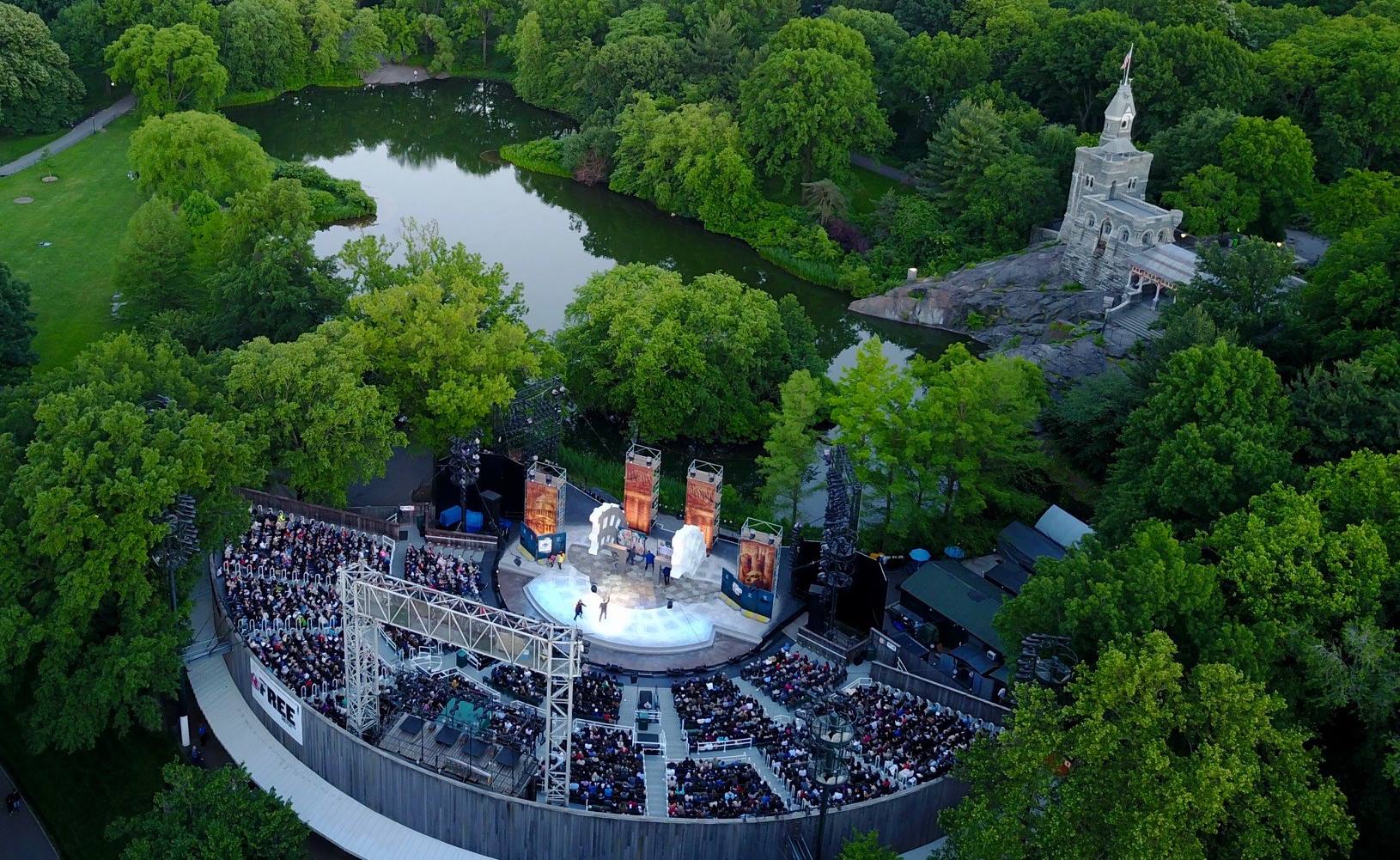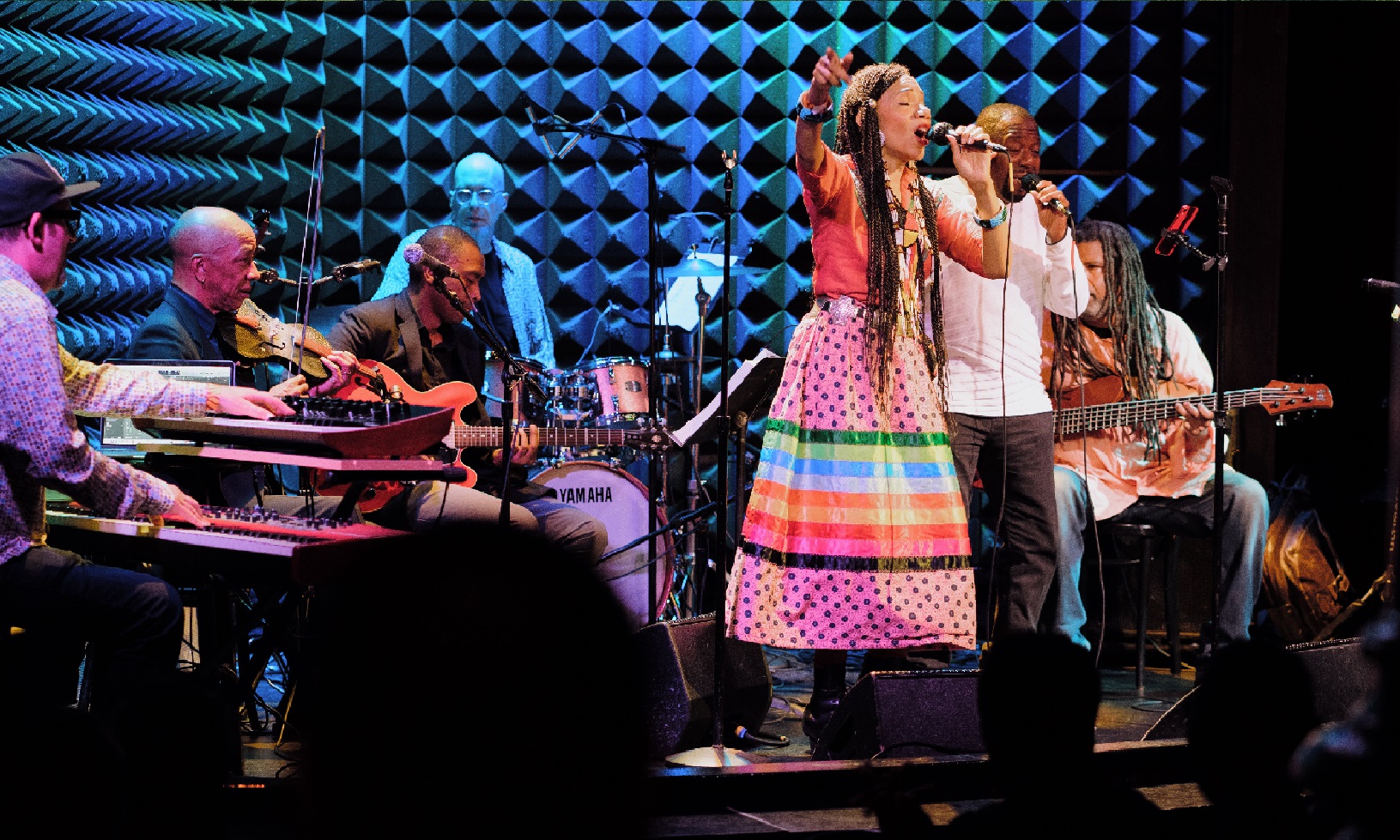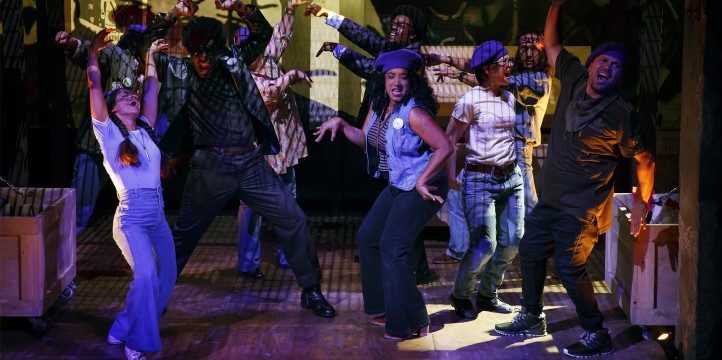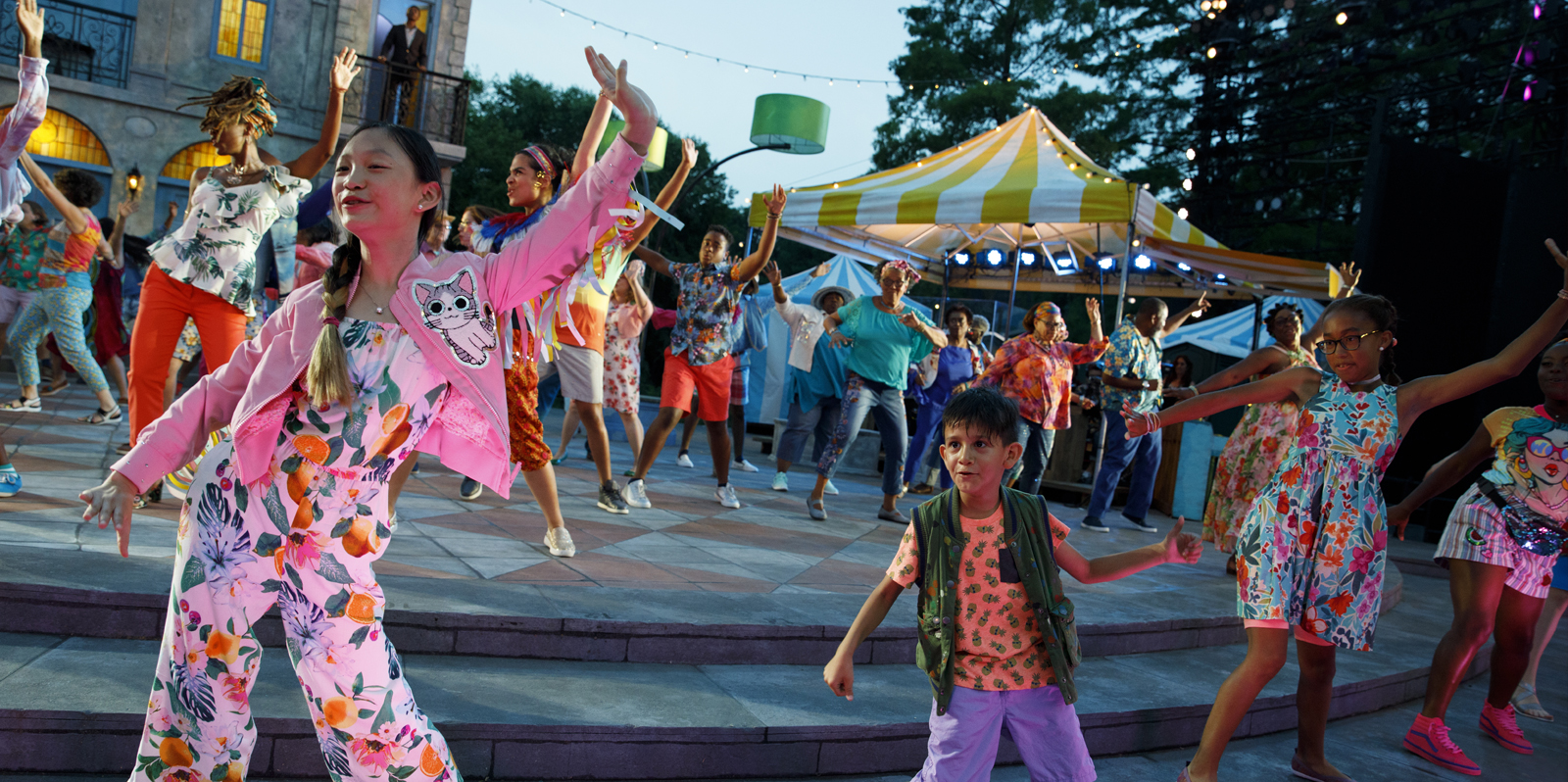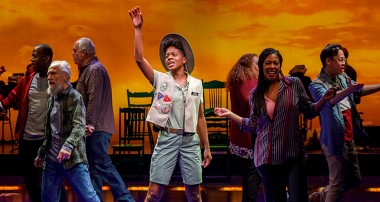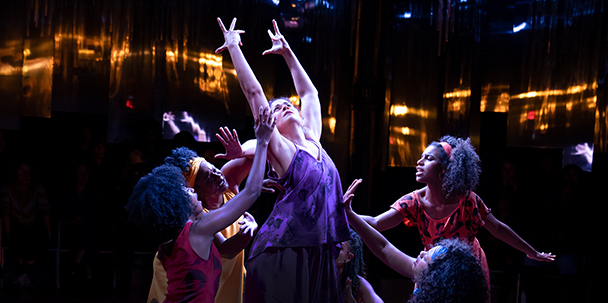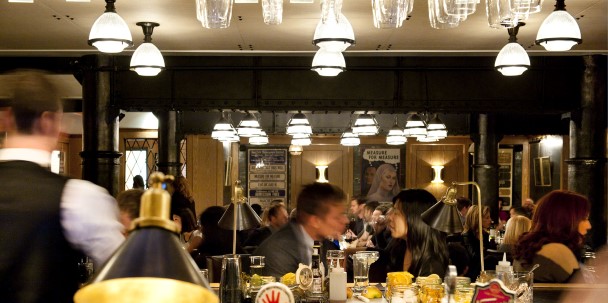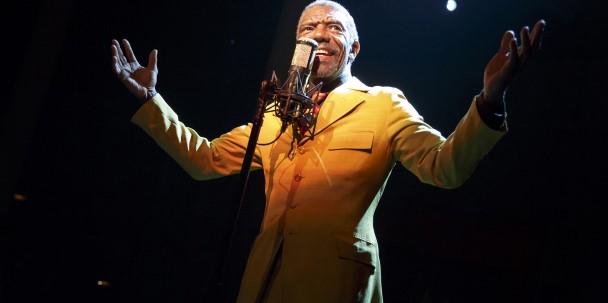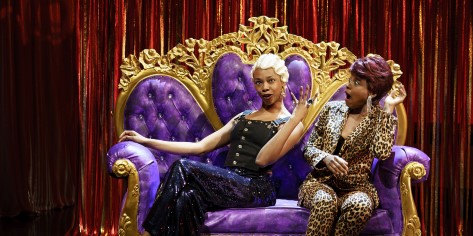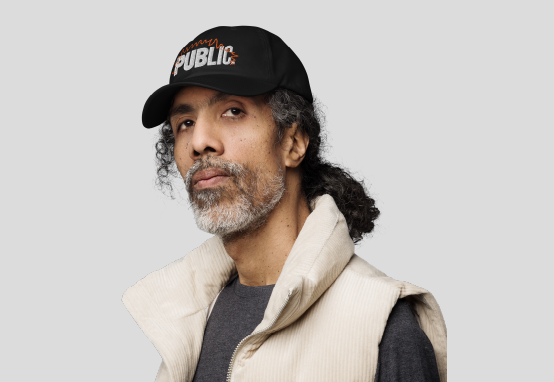Afrikah Selah speaks with Hair, Wig, and Makeup Designer Earon Chew Nealey about her experience working with The Public Theater and Pulitzer Prize-winning playwright and The Public’s Writer-in-Residence, Suzan-Lori Parks’ world premiere musical, THE HARDER THEY COME.
Afrikah Selah: Before we dive in, can you share more on how you got started in Hair, Wig, and Makeup Design, and what your journey has been so far? And how you started working with The Public Theater?
Earon Chew Nealey: I was first introduced to theatrical makeup when I was in college. I initially went for dance, and I decided it wasn’t something I wanted to do anymore. So, I signed up for this theater makeup class and fell in love with the art of creating the look. I went on to work at MAC Cosmetics and Norcostco Theatrical Supply in Dallas. I later worked with the Dallas Opera on Aida to paint their background actors, where I became part of the union. Not long after joining, the Dallas Opera called me and asked if I could come in to do hair for The Little Mermaid as they were out of people and had a union contract. I had never touched wigs, knew nothing about hair, and was unsure if they were supposed to be calling me. Regardless, when I arrived, the Hair and Wig designer, Leah Loukas, happened to be there. She and everyone on staff showed me how to literally put a wig on, how to pin it, everything. I ended up really loving it and came back to work on Thoroughly Modern Millie, which happened to be with Leah Loukas again. She saw how much I had learned and gotten comfortable in the role of hair and styling wigs and asked if I would be her assistant for a show in New York. When I came to New York in 2014, the first theater I ended up working at was The Public on The Fortress of Solitude. I didn’t understand at the time the magnitude of what working at The Public meant until I booked my first Broadway show, Jitney, that began my design journey in 2017. A few years later, The Public called and asked if I’d be interested in interviewing to design Mojada. It's always exciting to get to design at The Public because it's where I started. Now I get to do THE HARDER THEY COME. And I get to take Fat Ham, which also started at The Public, to Broadway this year, and I get to design Free Shakespeare in the Park (Hamlet). I have to thank Leah Loukas and other designers who believed in me and gave me opportunities, and The Public for always trusting in me and letting me do such beautiful work with them.
AS: You've worked on these amazing thought-provoking, award-winning plays such as Fat Ham, cullud wattah, The Fortress of Solitude, and Mojada at The Public Theater. In each play, there are these threads that tie these complex and multifaceted stories to issues and themes around race, class, gender identity, and community. And now, with THE HARDER THEY COME premiering following the film’s 50th anniversary, we're taking a story that was in a Jamaican context now to New York. In your own words, what conversations or questions were you, the cast, and creative team hoping to pursue?
ECN: Our biggest thing was staying very true to the look and authenticity of what Kingston, Jamaica, and Jamaica in general looked like then, especially with hair, the character-specific thing, especially with women. I know for us, it was just making sure it was super authentic. I just so happened to have access to people who grew up in Jamaica at that time, which I was just like, "Oh, this is amazing." I know the movie. My partner is actually from Jamaica, grew up there. I sat down with their uncle and mom and dad, and I was like, "Great, these are all the questions I have." I shared my ideas, and they went through each and every one of them with me. And it was like, even though I didn't always have a solid picture reference, I had someone who could sit there and describe the look. It was even the concept of uniforms being a big thing in Jamaica. If you had a job, with a uniform, it was a sign of respect wearing it as it symbolized the level of person that they are. A lot of looks are still there today, and a lot of those traditions have stayed within the families. There are some modern looks, but there are still some very traditional looks.
AS: I’m hearing authenticity, tradition, and maintaining that culture. Especially through familial generations. From that trip, was there anything that you brought back from your experience to Suzan-Lori Parks and the creative team that really shaped THE HARDER THEY COME?
ECN: I really sat down with our directors, and I said, “These are my thoughts. I know we all have an idea of what we want to do, but I just feel like these are some things I really want to put forth.” And the one thing I can say is with The Public Theater and the creative team is everyone is very good at respecting and listening to your expertise in your area. I also talked to the actors and asked them, “What is your backstory to your character?" Whether it's the main cast, understudies, covers, every person can play the same character, but they're going to bring a different person to that character. That backstory really gives us extra insight to who you're going to be on stage, and I always feel like that [is] a very important part to developing the look. I like to make sure the looks aren't necessarily uniform, and that they give identity to the character that's on stage in that moment. Because for me, we are all going to bring something new and different.
AS: Speaking to trust and backstory, before our interview, I had the chance to see some production photos for Fat Ham and saw this bright natural glow from the cast, especially in seeing natural hair in different forms being more represented on a theatrical stage. Can you talk more about how you center the celebration of Black hair and beauty, with care, in your process?
ECN: The biggest thing is because we're dealing with wigs, we're also dealing with people's natural hair under the wigs. Maintaining that is always a big importance for me. I’ll ask actors if they suffer from hair issues, alopecia, or balding, and about hair care products or allergies to be mindful of. I always try to take things like that into consideration. I always try to make sure that they’re as comfortable as possible, that their hair that is growing out of their scalp stays and keep the integrity of it. As far as wigs go, I’m always trying to make sure that for any plays featuring BIPOC actors, I always want them to see themselves when they look in the mirror and feel so right to who they’re about to present on stage. I always try to be very open and listening and making sure I'm not just designing because I think it's going to look cute. Sometimes it needs to make sense and it needs to feel right. And I’m all about the question: does it feel right in the moment? Does it have that authenticity? And I think it’s an intuition. Sure, I can see the actor, but there’s a way an actor walks on stage when they’re comfortable in that look. They have that little extra swag to them. And that’s always the look that I’m looking for—that glow that they get.
AS: I really appreciate you sharing the thoughtfulness and care that you put in each production. Looping back to authenticity and this right gut feeling, and with the premiere of THE HARDER THEY COME, what's the thing that you're feeling excited about or that you look forward to audiences seeing the show?
ECN: I think that I really want people to be able to sit down and go, “I know this person. That was my grandmother, that looks like my aunt! This is where I grew up and these are the people I grew up with.” I want anyone that comes in to have this nostalgic moment where they think of the film and also beyond it. I want them to walk away feeling like we did the show justice, and we did them proud.
………
THE HARDER THEY COME premieres on February 16 at the Newman Theater and runs through March 26. To learn more about the show, check out our podcast episode for Public Square 2.0.
Afrikah Selah (they/them) is a Black and queer multi-hyphenate cultural worker based in Massachusetts with a focus on producorial dramaturgy, new play development, and arts writing. Their work centers community, identity, and dialogue, often experimenting with multicultural, devised, adaptation, and ritual theatre processes. You can learn more about their work at itsafrikah.com & follow them on Instagram @itsafrikah.
This piece was developed with the BIPOC Critics Lab, a new program founded by Jose Solís training the next generation of BIPOC journalists. Follow on Twitter: @BIPOCCriticsLab.
PHOTO: Earon Chew Nealey, photo by Andres Otero

